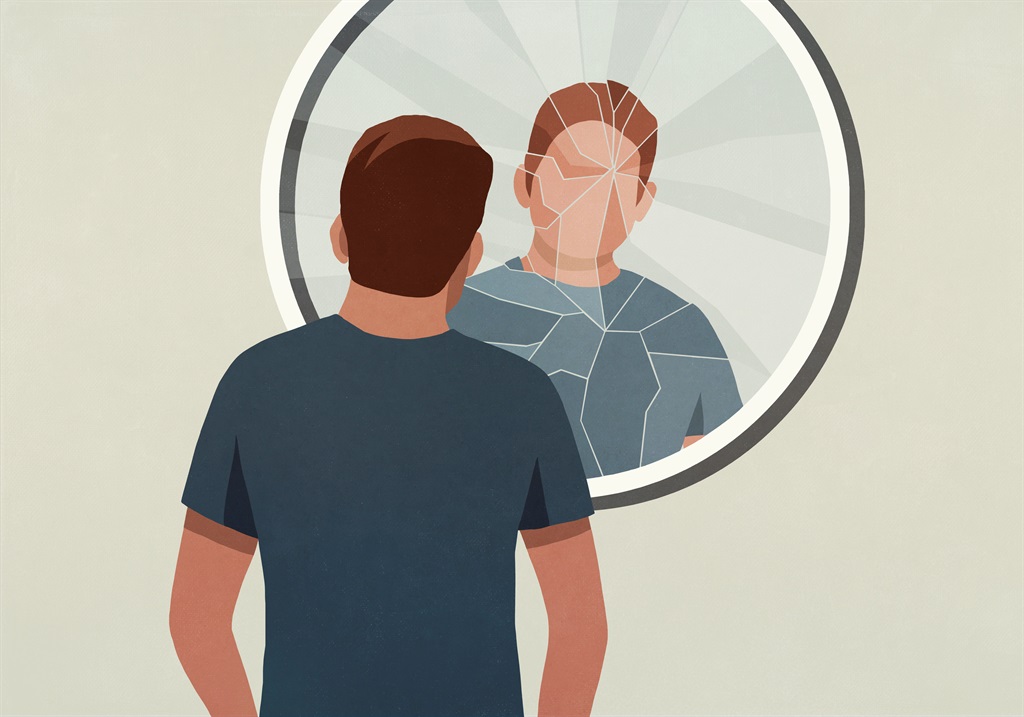
- Despite evidence showing body image issues are on the rise in men, there’s a distinct lack of awareness about the problem.
- Support cannot simply be transplanted from women to men because body image concerns tend to differ according to gender.
- For women, body image issues arise from the pressure to conform to the “thin ideal”, while for men, many feel pressure to be muscular and look lean or athletic.
Body image issues are sometimes thought to mainly affect women. But some surveys estimate around 28% of men aged 18 and over regularly struggle with their body image.
Yet, despite evidence showing body image issues are on the rise in men, there’s a distinct lack of awareness about the problem – alongside a dearth of assistance available to help them. Much of the support that’s available still tends to focus on women.
Support cannot simply be transplanted from women to men because body image concerns tend to differ according to gender. For women, body image issues arise from the pressure to conform to the “thin ideal” – a body that’s slim. For men, many feel pressure to be muscular and look lean or athletic.
Current treatments for body image issues involve asking people to critique the thin ideal in order to undermine its influence. Almost all the studies we have which have explored this treatment have focused on whether it’s effective in female participants – while its relative effectiveness for men is under-explored. Moreover, most treatment programmes can take several hours or sessions to complete.
But research has identified two alternative methods that may be more useful in helping men cope with their body image issues.
The first is through improving media literacy. Social media, and being exposed to images of idealised bodies, is shown to have a negative affect on wellbeing and mental health for both men and women.
With media literacy training, participants are educated about the “truthfulness” of the images they see on social media. They might be taught about how images can be digitally manipulated, shown how artificial lighting can be used to flatter the subject or point out that often the people in online images are professional models who know how to pose in a flattering way.
By improving media literacy, it can help a person be more critical of what they see online.
The second technique is through cognitive restructuring. This psychological process teaches people to recognise negative thought patterns and replace them with more positive ones.
For example, when viewing social media images, someone may think “my body is terrible in comparison to this person” and feel worse about themselves. But cognitive restructuring trains them to recognise these thoughts and change them into something more positive and reasonable. So in this case, a person will be trained to consider whether it’s reasonable to compare themselves to a professional model. This helps dilute the negative thought and improve wellbeing.
READ MORE | Expert weighs in on how body dysmorphia shapes sexual experience and pleasure
Improving body image
Research previously published by myself and a colleague investigated whether these two methods can reduce body dissatisfaction in men. We found them to be very effective.
We conducted two separate studies. To begin with, we taught a focus group the principles of media literacy and cognitive restructuring. We then asked them to use this knowledge to produce a slideshow aimed at teaching people about how social media can distort their body image.
Next, we tested the effectiveness of these materials on 514 male participants aged 18-73 who had been shown social media images of idealised bodies.
Across two experiments, participants’ body image was more positive if they had seen the focus group’s slideshow compared to the control group who had not. Participants who viewed the materials prior to seeing social media images appeared to be “inoculated” against their potentially deleterious effects.
Further examination of the data suggested that viewing the slideshow reduced the perceived realism of the images on social media. After exposure, participants were more aware that the images were not realistic, and so did not compare themselves to the people in the images.
This is a promising first step in improving men’s body image, showing how effective an accessible intervention can be in improving men’s body image. From here, researchers can now begin to investigate whether the effects of this intervention are long-lasting – and whether certain personality traits might make the intervention more effective.
In the meantime, this research offers key practical advice to people who may feel they’re at risk or sometimes struggle with their body image.
First, remember that what you see online isn’t real. Images on social media usually aren’t a true reflection of real life, and the internet is replete with examples of this. The hashtag #instagramvsreality on Instagram or Reddit has many great examples of this.
Second, try to be more mindful of the judgements you make about yourself when looking at social media images. Are they reasonable? Are they fair? Are you being over-critical of yourself? Being aware of these feelings is the first step in reducing their influence on you.
Hopefully, with a renewed focus on this topic, we can not only develop better treatments for body image issues, but also raise awareness which may help more men get the help they need and feel more positive about their bodies.
Chris Stiff, Senior lecturer in Psychology, Keele University
This article is republished from The Conversation under a Creative Commons license. Read the original article.




 Publications
Publications
 Partners
Partners












